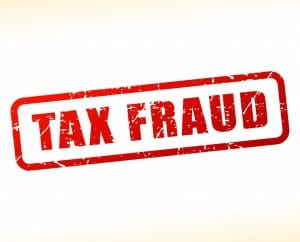Hidden Assets and Tax Fraud: When Your Spouse Is Lying About Money
 According to researchers from the IRS, Carnegie Mellon University, the London School of Economics, and the University of California Berkeley, high-income tax evasion is on the rise. One recent poll also concluded that 44% of people keep financial secrets from their partners.
According to researchers from the IRS, Carnegie Mellon University, the London School of Economics, and the University of California Berkeley, high-income tax evasion is on the rise. One recent poll also concluded that 44% of people keep financial secrets from their partners.
The reasons vary but typically center around a desire to control finances, shame over handling money, an unwillingness to share, and in some cases addiction. It is when a marriage fails, and divorce is on the horizon, that these matters can become even more complicated to handle. Whether or not you are involved in fraud or maybe you have no idea your spouse is even hiding assets from you, it is important to have a protection plan to protect yourself.
What is an asset protection plan?
An asset protection plan is a legal action that protects your assets from creditors, divorce, or lawsuits. It can help prevent the seizure of assets. A professional and legal examination is the core part of a protection plan. The expert evaluates the financial situation, assets, and goals.
In order to maximize effectiveness, an asset protection plan should be implemented before the need arises. The best ways to protect assets are to land trusts for the privacy of ownership, LLCs for asset and lawsuit protection, corporations to shield personal assets from business lawsuits, and offshore asset protection trusts (this is the best way to protect assets that are liquid).
Asset protection is important because it reduces the risks of losing the property you have accrued over time. This type of security provides peace of mind for yourself and those who depend on you to provide for them.
How do I know if my spouse has hidden assets?
The primary goal of the divorce process is equal distribution of property between each partner. The first step of equitable distribution is to identify all the property attained during the marriage.
Your spouse may be hiding assets if:
- Money is being moved from one account to another with no reason
- Accounts are being closed or opened without your knowledge
- Your spouse has suddenly started taking an interest in paying the bills him or herself
- You find unexplained charges and purchases on your bills
- Your spouse claims he or she has “loans” to pay off that you have never seen, or starts making “loans” to friends and family members
- Your checks bounce
If you believe that your spouse is hiding assets while you are going through a divorce, there are a couple of different steps you can take to find those assets:
- Have your attorney request in writing that your spouse provide copies of tax returns, loan applications, financial statements, and account records.
- Request a credit check to see if there are any significant unpaid debts attached to you or your spouse, or open loans about which you are unaware.
- Check public records for purchases made in your spouse’s name.
- Keep careful track of changes in bank or account statements, and photograph the documentation each day.
Your attorney is your most valuable tool when it comes to finding hidden assets. Not only do lawyers often work with forensic accountants, but they are able to do things you cannot do, such as:
- Making requests for admission, which means your spouse must answer questions in writing or admit that statements you have made are true.
- Demanding an inspection of the property, safe deposit boxes, and other items to determine if assets are being hidden.
- Cross examining your spouse under oath about the assets he or she has in their possession.
If there is no premarital or post-marital agreement in place to protect your right to certain assets, then the best thing you can do is trust the professionals to help you uncover any hidden assets or acts of fraud. This last bit is very important, because if your spouse committed an act of tax fraud, it is a crime, and the state and/or federal government can seize all of your assets, leaving you tied up in court for years trying to get back what is yours. Furthermore, if all of your assets are joint assets, there is every chance the government will assume you were a willing partner in your spouse’s criminal activities.
How can I protect myself financially?
Hire a good divorce lawyer. You will need one.
But it is not the only thing you can do:
- Perform an inventory of all valuables
- Understand the ownership status of all property
- Have an appraiser value all property
- Photograph joint property
- Obtain proof for any property gifted or inherited
- Photocopy all important martial documents
- Ensure your business billing and other documentation remains transparent
If you believe your spouse is playing fast and loose with your assets, or is committing an act of fraud, you need to be proactive and aggressive. Be sure to call Epperson Law Group at 704-321-0031 or complete the contact form to reserve a consultation with a member of our team. The Epperson Law Group works with experts to establish the value of any asset as well as uncover any hidden assets you may not even be aware of. We operate offices in Charlotte, Boone, Concord, and Weddington to serve clients throughout North Carolina.

Steven B. Ockerman is a graduate of the U.S. Naval Academy and Washington University School of Law. He has practiced law for over 25 years, concentrating on family law matters for over 16 years, and is a Board Certified Specialist in Family Law since 2009.
Find out more about Steven B. Ockerman
